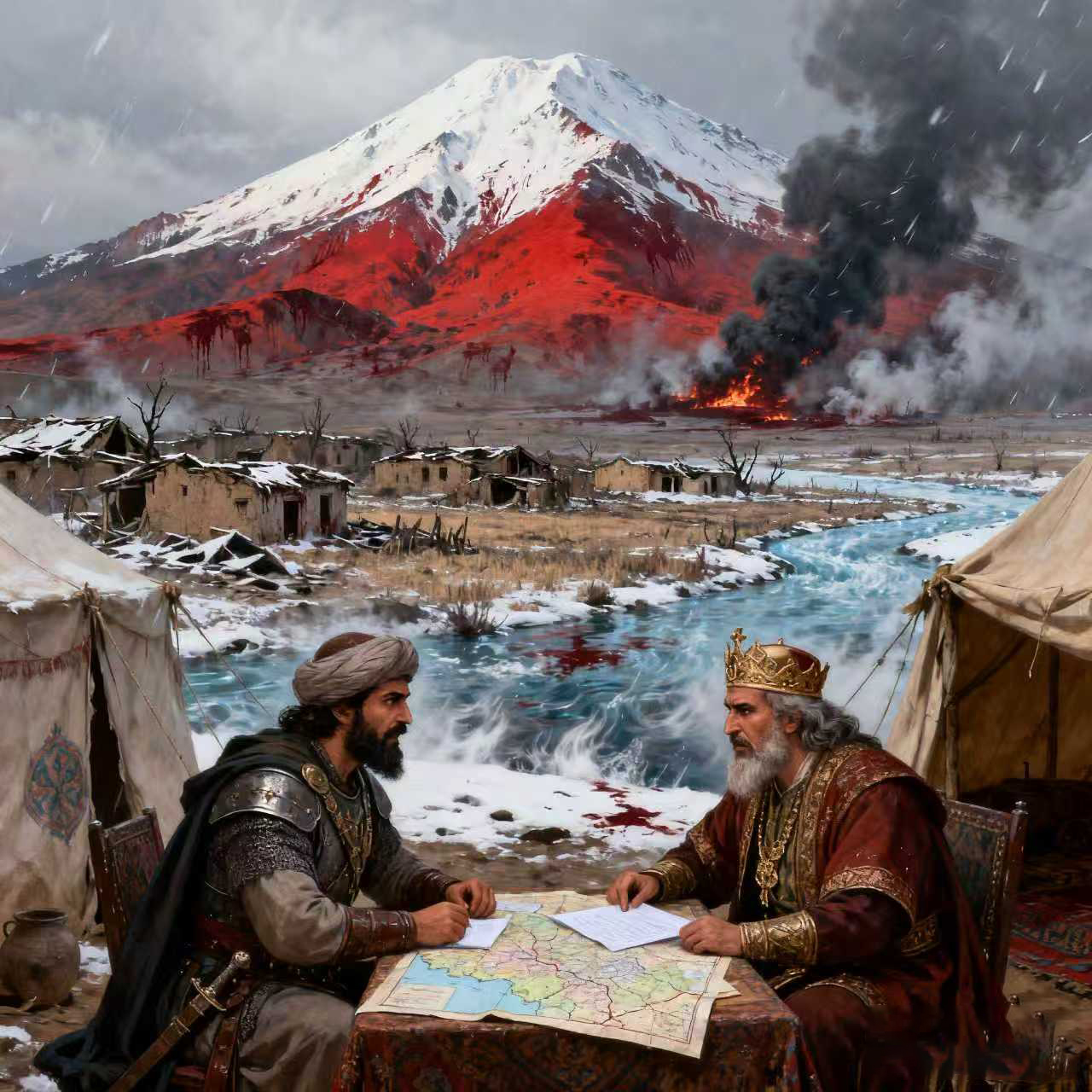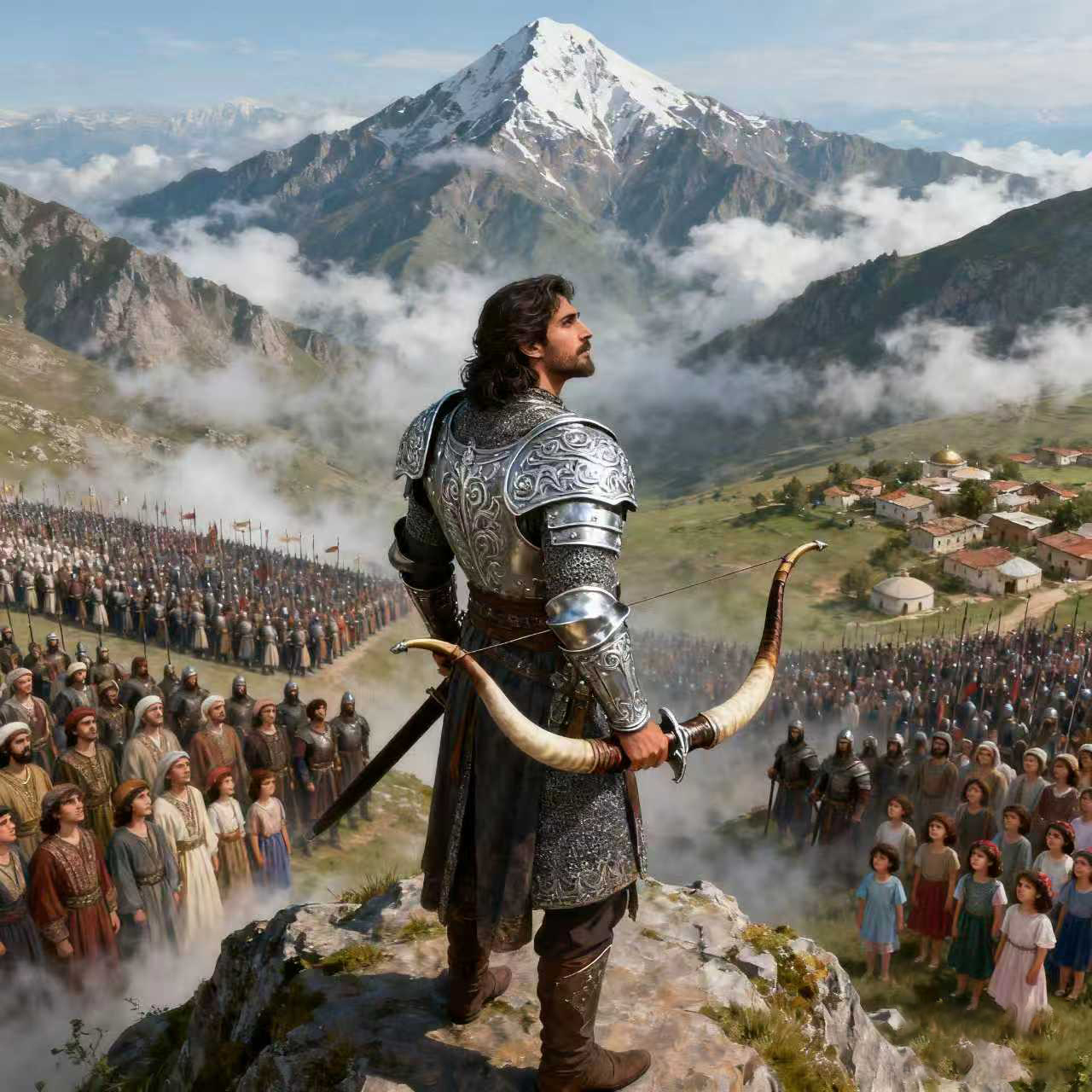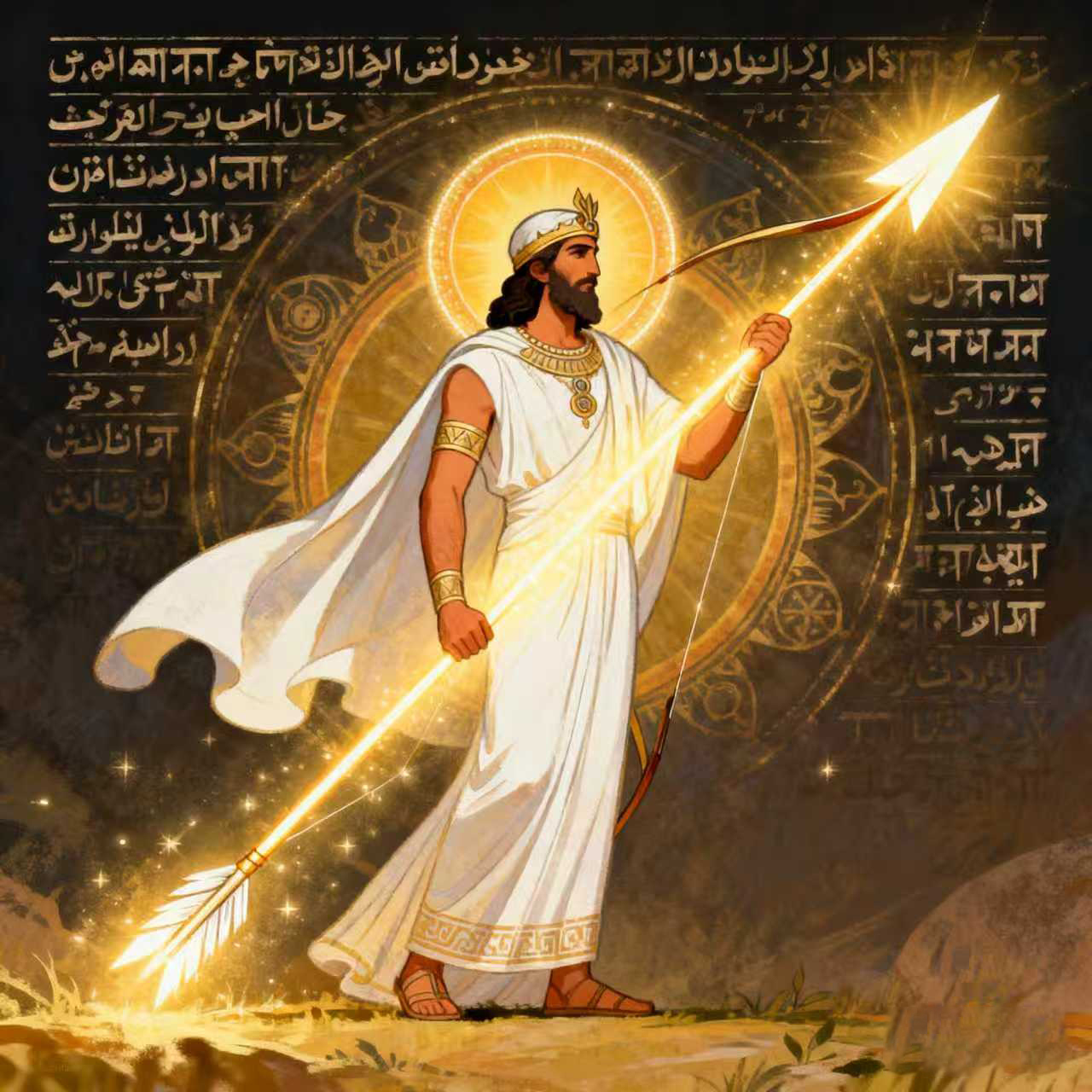+86-13516938893
Menu
global purchase

In the era of Persia’s Bishdad Dynasty, the flames of war between Iran and Turan had raged for sixty long years. Blood dyed the slopes of Mount Demavand red; famine gnawed at the villages on both banks of the rivers; even the snowmelt from the Alborz Mountains carried the bitter taste of gunpowder. When the swords of both sides had grown blunt and their provisions were exhausted, Afrasiab, the great general of Turan, and Manuchehr, the Shah of Persia, finally agreed to negotiate peace. Yet they reached an impasse over the demarcation of the border—neither side was willing to yield an inch of land, and the hope for peace was on the verge of vanishing like a bubble.
At that moment, a white-haired wise man stepped forward and said, “Let the bravest archer climb Mount Demavand and shoot an arrow eastward. Where the arrow lands shall be the boundary between the two countries. This is a fairness that only the gods can judge.” The proposal was accepted by both sides, but when it came to choosing the archer, all eyes turned to Arash, a renowned archer in the Persian army.
Arash was the leader of the most elite archery unit under Shah Manuchehr, and his skill with the bow was legendary—he had once pierced a fluttering silk scarf from three hundred paces and hit a galloping antelope amid strong winds. Yet Shah Manuchehr hesitated to give his consent, for he knew well that this arrow was no ordinary shot: to draw a fair border, the arrow must fly a thousand li, and such a feat would require the archer to exhaust all the strength of his life. It was not until midnight, when the gods appeared to him in a dream and said, “Forge a special bow and arrow. Arash is the one chosen by fate; he shall end this suffering,” that the Shah made up his mind.

On the summer solstice—the day later celebrated by Iranians as the Tiregan Festival (a traditional Iranian holiday honoring water and nature)—Arash wore armor inlaid with silver patterns and held a ox-horn bow crafted by blacksmiths over forty-nine days. He climbed to the summit of Mount Demavand. The armies of Persia and Turan stood in formation at the foot of the mountain, and tens of thousands of eyes fixed intently on this hero who was about to rewrite history. He took a deep breath of the cool mountain air, and his gaze swept over the land below—where lay the villages he had defended, and the faces of children longing for peace.
“For mothers who shall no longer weep, for fields that shall no longer lie barren!” Arash whispered a prayer, then drew his bow until it formed a full moon. In that instant, the veins on his muscles bulged, and the light of life burst forth from his eyes, flowing down his arm into the arrow shaft. When the arrow’s fletching cut through the sky, a streak of fire like a shooting star lit up the heavens. Meanwhile, Arash’s body shattered with a loud crash, turning into countless glowing specks that drifted down onto the land he loved so deeply.
The arrow flew for three full days and nights, crossing deserts, canyons, and grasslands, before finally landing on the banks of the Amu Darya River. Soldiers from both countries followed the trajectory of the arrow, and when they saw the arrow deeply embedded in the riverbank, everyone fell silent—this boundary favored neither Persia nor Turan; it was a fair line guided by the gods. From that day on, the war ceased. Caravans resumed their journeys on the Silk Road, children chased and played in the fields, and the waters of the Amu Darya once again nourished the crops on both banks.

In the Avesta, the sacred scripture of Zoroastrianism, Arash is praised as “the Aryan among Aryans,” and his arrow has become a symbol linking light and peace. To this day, Iranians still hang colorful arrow-shaped decorations during the Tiregan Festival, and many parents name their children “Arash” to honor this hero who sacrificed his life for peace. And on the banks of the Amu Darya, a saying is still passed down: “When the wind blows through the reed marshes, it is Arash listening to the song of peace.”